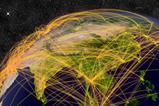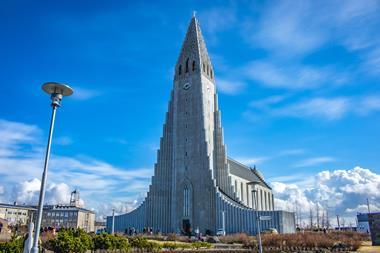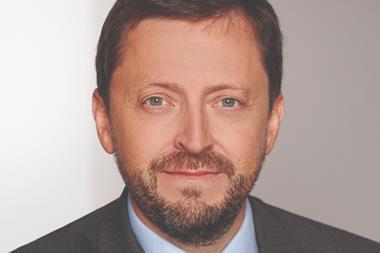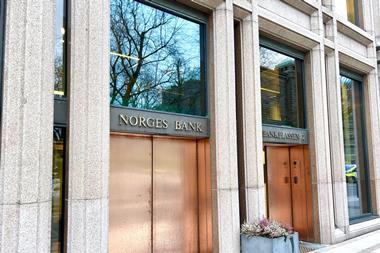Pension funds and other institutional investors are closely assessing the geopolitical tensions between Russia and Ukraine, which could lead to an armed conflict. So far they are avoiding taking drastic measures to readjust investment portfolios.
The Russo-Ukrainian conflict began in 2014 following the Russian annexation of Crimea from Ukraine. The Russian government feared that Ukraine’s membership of the EU and NATO would complete a western wall of allied countries by restricting Russia’s access to the Black Sea.
The German provider of occupational pensions for employees in the Catholic Church and charitable services, KZVK, has been monitoring the situation between Ukraine and Russia “very intensively” for some time, Stefan Heidel, head of the capital investment department, told IPE.
The scheme is only invested via emerging market funds in a Master-KVG with a low exposure to Ukraine and it is in constant contact with the funds.
“The managers manage the funds independently, KZVK only exchanges information with the managers, and no direct instructions were given to them,” he added.
KZVK could consider reducing its exposure to Ukraine or even excluding it from its list of investable countries – Russia is already excluded, Heidel said.
“With respect to the whole portfolio, the negative consequences of an escalation of the Ukraine crisis on the global stock markets would be limited by a hedging strategy implemented at the level of the Master-KVG which manages the funds,” Heidel added.
Austria’s VBV has set up a risk management process to respond to the on-going geopolitical tensions between the two countries and, in addition, “we have taken certain hedging [measures]”, Günther Schiendl, member of the board of directors of VBV-Betriebliche Altenpension and VBV-Pensionskasse told IPE.
However, the pension fund is considering taking precautionary measures from the perspective of possible risks rather than a tactical readjusting of its portfolio. “In other words, we generally see world politics more geared towards confrontation as a constantly increased risk and react accordingly,” he added.
UBS pointed to volatile financial markets at the start of the year as a result of inflation, which remained higher than expected and leading to a price correction especially for growth stocks, and increasing geopolitical tensions between Russia and the US.
US president Joe Biden has cautiously agreed to talks with Russia’s Vladimir Putin, brokered by France’s Emmanuel Macron. But there are still concerns a potential invasion could set off another steep round of commodity price rises, adding fuel to the fire of inflation, particularly if more wide ranging sanctions are imposed such as stopping the access of Russian companies to US dollars and British pounds.
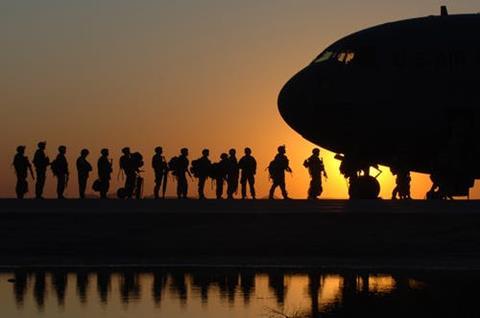
Affecting returns
Swiss Pensionskassen in January achieved an overall average return of -1.86%, the worst since 2008. The performance of medium-sized pension funds with assets under management of between CHF300m (€287m) and CHF1bn (1.44 percentage points) was significantly lower than for the larger (1.65 percentage points) and smaller (2.30 percentage points) pension funds, it said.
UBS declined to comment on how its pension fund is reacting to the tensions between Russia and Ukraine.
Among asset classes, bonds and equities suffered the most with fixed income investments in foreign currency returning -1.35% and in Swiss francs -0.58% in January. Swiss equities were the worst performer at -5.80%, followed by foreign equities at -2.84%. Real estate returned instead 0.23%, alternative investments landed on a positive note with hedge funds returning 1.51% and private equity and infrastructure at 1.92%, UBS said.
A mix of high inflation and geopolitical tensions between the US and Russia resulted in losses across virtually all asset classes, the pension fund of the city of Zug said.
Fixed income lost around 1.5%, while Swiss equities lost 5.7% and foreign equities denominated in CHF 3.8%. Real estate, some alternative investments, emerging market equities retuned 1%, it added. In January the Pensionskasse portfolio lost overall 1.7%, with an estimated funding ratio close to 114%, it said.
Fluid situation
DWS considers the situation in Ukraine fluid with a full-scale invasion by Russian troops unlikely but thinks Russia could continue to test the patience of the West with further escalations through cyber attacks, intensive fighting in eastern Ukraine and air strikes.
Apart from the increase in oil and gas prices, global food prices could continue to rise given the importance of Russia and Ukraine for wheat cultivation. Russia’s role as a supplier of raw materials or refined aluminium, palladium, copper and nickel products could also have an impact on the markets and lead to renewed delivery problems in the West, DWS added in its analysis.
A further escalation could affect European bonds and the euro, although much would depend on the details as well as the timing, while for emerging market bonds DWS expects them to react in different ways depending on whether they are commodity exporters or importers.
With regards to infrastructure DWS has noted that funds have invested little in private infrastructure assets in Ukraine, as investors tend to focus on markets with a strong institutional framework, therefore it does not expect an impact on the return profile of the asset class.
KZVK invests on the basis of its current strategic asset allocation and a change of its investment strategy is only to be expected in the event of serious political upheavals.
“A peaceful agreement [between Russia and Ukraine] would therefore mean that there would hardly be any changes in the portfolio,” Heidel said.
The current geopolitical situation increases the uncertainty on the markets not only with regards to Russia and Ukraine, but also to the Baltic states. “Against this background, higher volatility could be expected, Heidel said, adding that as a long-term investor, KZVK is “currently more concerned with global inflationary developments than with short-term political events”.
Irrelevant
Nikesh Patel, head of client solutions at Kempen Capital Management, said: “As a fiduciary manager, the current tensions are, directly, irrelevant as both countries are very small exposure and not really a consideration from the top down perspective.”
He mentioned, however, two tail risks: first that a conflict causes energy prices to stay high, meaning inflation remains a concern for longer than expected, and hence that rates expectations would be pushed higher than are currently priced in.
“Rising expectations of rates has implications for equities overall and overall asset allocation – for example, one might reduce rates hedges whilst maintaining a high inflation hedge,” he said.
“The second tail risk is of course a wider geopolitical crisis; usually this would be a negative for markets, but in these days of [quantitative easing] QE and helicopter money, the actual crisis is secondary to the monetary and fiscal response to the crisis,” he continued.
He noted that if there is a concerted effort from central banks, US markets could widen their lead to Europe even further as a relative safe haven. “The asset allocation to protect from this scenario would be an overweight to US assets, but with the additional protection of a downside hedge through structured options,* Patel said.
“On a slightly tangential note, a conflict would likely have material impact on the path to net zero; I would expect greater political emphasis on energy security than decarbonisation in the near term – this could change the global pathways from the Paris pathways,” he added.
Read the digital edition of IPE’s latest magazine













